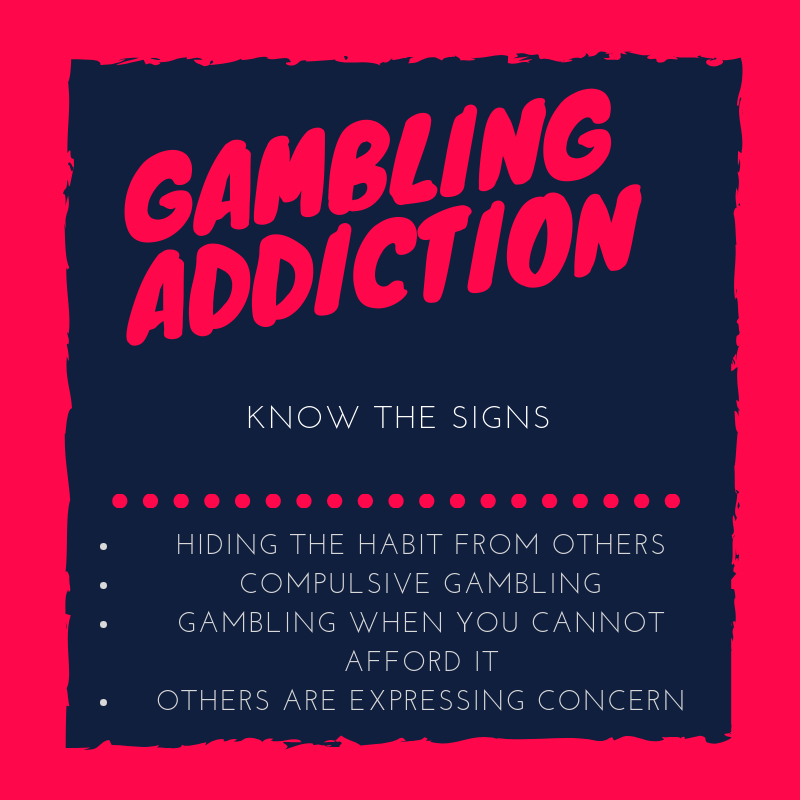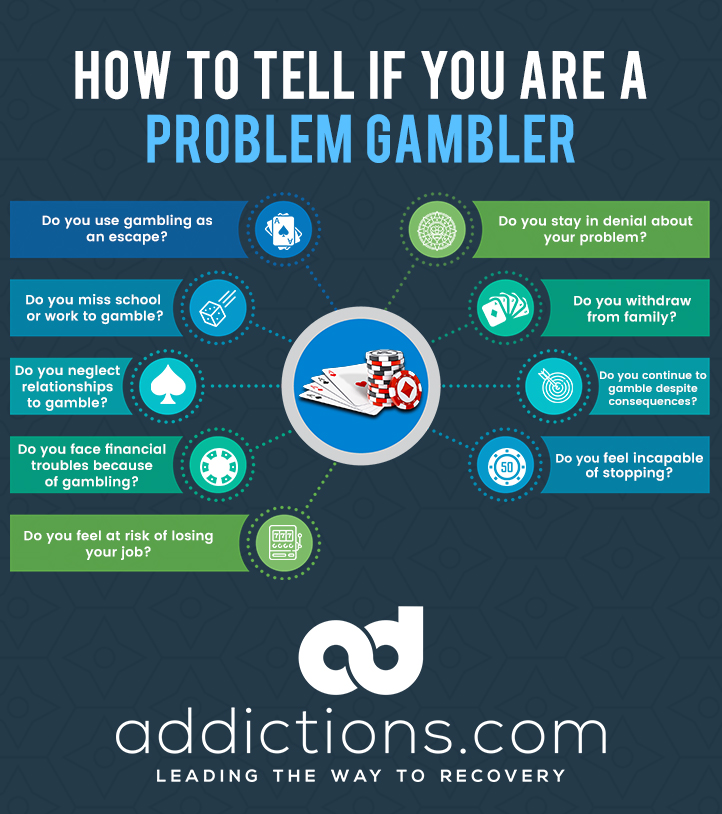What to Do If You Have a Gambling Problem: Effective Steps to Recovery
Have you ever felt like your gambling is starting to control you instead of the other way around? If you’re worried about your habits, you’re not alone—and there’s hope.
Knowing what steps to take can make a huge difference in regaining control of your life. This article will guide you through simple, practical actions you can start right now to overcome a gambling problem. Keep reading—your path to freedom begins here.

Credit: lifelineconnections.org
Recognizing Gambling Issues
Recognizing gambling issues is the first step toward recovery. It helps to identify problems early and seek help. Many people ignore signs or feel ashamed to admit there is a problem. Understanding the signs and how gambling affects life can guide you to take action.
Signs Of A Gambling Problem
Spending more money than planned on gambling. Feeling restless or upset when not gambling. Trying to win back lost money but losing even more. Lying to family or friends about gambling habits. Borrowing money or selling things to gamble. Neglecting work, school, or daily tasks because of gambling.
Impact On Life And Relationships
Gambling problems often cause stress and arguments at home. Trust may break down between partners or family members. Financial problems can lead to debt and loss of savings. Social activities may decrease as gambling takes priority. Emotional health can suffer, causing anxiety or depression. Support from loved ones often weakens over time.

Credit: georgiaaddictiontreatmentcenter.com
Seeking Professional Help
Seeking professional help is an important step for anyone facing a gambling problem. Experts can guide you through recovery. They provide tools to manage urges and rebuild your life. Many people find relief and hope by reaching out for support.
Therapy And Counseling Options
Therapy offers a safe place to explore your feelings and behaviors. Licensed counselors use methods like cognitive-behavioral therapy (CBT) to change harmful habits. Talk therapy helps identify triggers and develop coping strategies. Some sessions happen one-on-one, while others occur in groups. Professional support can reduce stress and improve mental health.
Support Groups And Resources
Support groups connect you with others facing similar struggles. Sharing experiences can reduce feelings of isolation. Groups like Gamblers Anonymous provide peer support and accountability. Many communities offer free meetings and online forums. Resources include hotlines, websites, and educational materials to guide recovery.
Developing A Recovery Plan
Developing a recovery plan helps take control of gambling problems. It gives a clear path to follow. Planning keeps focus and builds confidence. It breaks big changes into small steps. This makes recovery easier and less scary.
Setting Realistic Goals
Start with small, clear goals. Avoid goals that feel too hard or fast. Goals like "limit gambling to once a week" work well. Write goals down to track progress. Celebrate each success, no matter how small. Realistic goals keep motivation strong and reduce stress.
Managing Triggers And Urges
Know what causes the urge to gamble. It might be stress, boredom, or certain places. Avoid these triggers as much as possible. Use healthy activities to replace gambling urges. Try exercise, hobbies, or talking to a friend. Practice deep breathing or mindfulness when urges hit. This helps keep urges under control.

Credit: www.addictions.com
Financial Management Strategies
Managing your money well is key when dealing with a gambling problem. Good financial habits help reduce stress and stop losses. They create control and build a safer path forward. Simple steps can make a big difference.
Budgeting And Debt Control
Start by making a clear budget. List your income and all expenses. Include bills, food, and transport. See how much money you have left. Set a limit for daily or weekly spending.
Track every expense carefully. It helps avoid surprises. Write down every purchase, no matter how small. This shows where your money goes and stops overspending.
Work on paying off debts slowly. Contact lenders to discuss plans. Avoid new debts at all costs. Focus on clearing old ones first.
Limiting Access To Money
Keep cash and cards in a safe place. Let a trusted person hold your money. Ask someone to help control your spending.
Use prepaid cards with a fixed amount. Avoid carrying extra credit cards or large cash. Set daily withdrawal limits at your bank.
Freeze or close online gambling accounts. Block gambling sites on your phone and computer. These steps reduce temptation and protect your money.
Building A Support Network
Building a support network is key for anyone facing a gambling problem. Support offers strength and hope. It helps reduce feelings of isolation and shame. People who struggle alone often find it harder to change. A strong network creates a safe space to share struggles and successes.
Involving Family And Friends
Family and friends provide emotional support. They know you best and can offer comfort. Be honest about your challenges. Ask them to listen without judging. Their encouragement can keep you motivated. They can also help spot risky behaviors early. Trust is important when sharing your feelings.
Connecting With Peer Support
Peer support groups bring together people with similar struggles. Sharing stories helps members feel understood. Listening to others’ experiences offers new ideas for coping. These groups meet in person or online. They create a sense of community and belonging. Regular attendance can improve your chances of recovery.
Maintaining Long-term Recovery
Maintaining long-term recovery from a gambling problem takes effort and care. Staying clean means building new habits and staying aware of your progress. It requires focus every day. This section explains how to keep recovery strong and steady.
Healthy Habits And Lifestyle Changes
Creating healthy habits helps keep the mind busy and calm. Exercise regularly, even a short walk works well. Eating balanced meals fuels the body and mind. Sleep is important. Try to get enough rest every night.
Find hobbies that bring joy without risk. Reading, painting, or gardening can fill free time. Spending time with family and friends builds a strong support system. Avoid places and people that trigger gambling urges. This makes staying on track easier.
Monitoring Progress And Adjusting Plans
Track your feelings and actions daily. Journaling can help notice patterns and triggers. Celebrate small wins to stay motivated. If setbacks occur, do not get discouraged. Learn from mistakes and adjust your plan.
Check in with a counselor or support group regularly. They provide advice and hold you accountable. Recovery is a journey, not a race. Keep reviewing ufabet เข้าสู่ระบบ and change steps as needed. Staying flexible helps maintain long-term success.
Frequently Asked Questions
What Are The First Signs Of A Gambling Problem?
Early signs include spending more money than planned, chasing losses, and hiding gambling activities. Mood changes and neglecting responsibilities also indicate a problem.
How Can I Stop Gambling On My Own?
Set strict limits, avoid triggers, and find hobbies to replace gambling. Seek support from friends or support groups to strengthen your resolve.
Where Can I Find Professional Help For Gambling Issues?
Look for licensed counselors, gambling helplines, and local support groups. Many organizations offer free, confidential assistance for gambling addiction.
What Strategies Reduce The Urge To Gamble?
Practice mindfulness, avoid high-risk situations, and create a budget. Engage in healthy activities and seek social support to manage cravings effectively.
Conclusion
Taking control of your gambling habits starts with small steps. Talk to someone you trust about your struggles. Seek help from support groups or professionals. Set clear limits and stick to them every day. Remember, recovery is a journey, not a race.
Stay patient and focus on your progress. You can regain control and live a healthier life. The choice to change is in your hands. Keep moving forward, one step at a time.